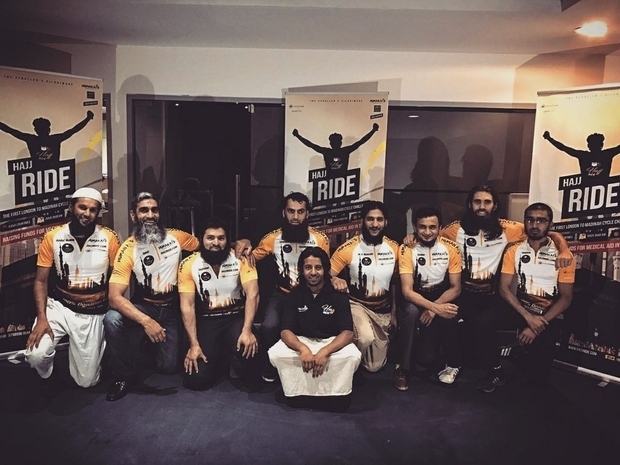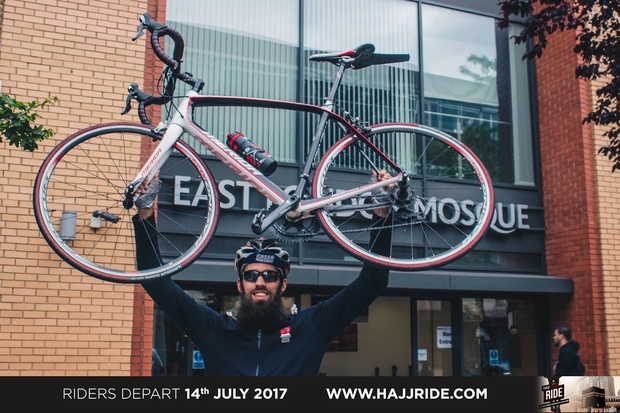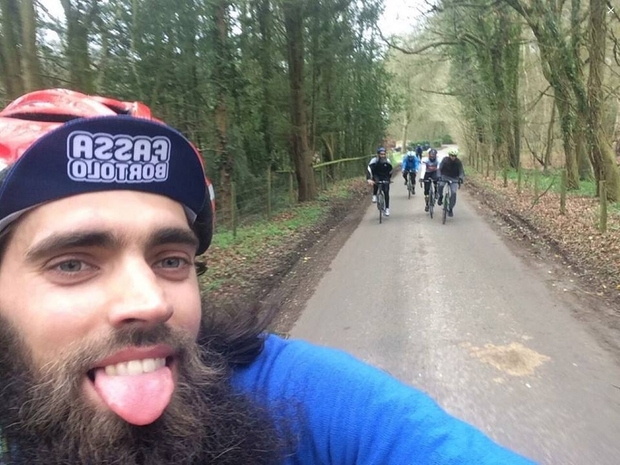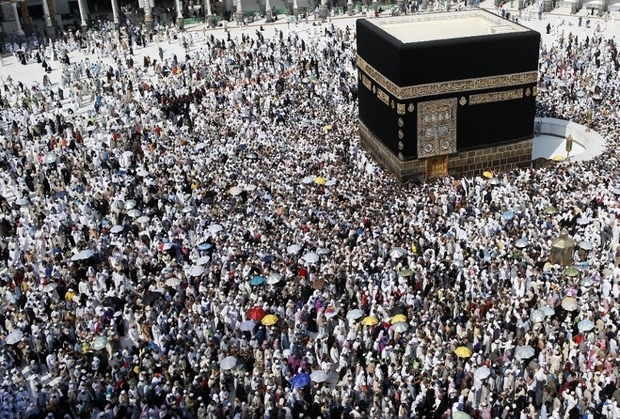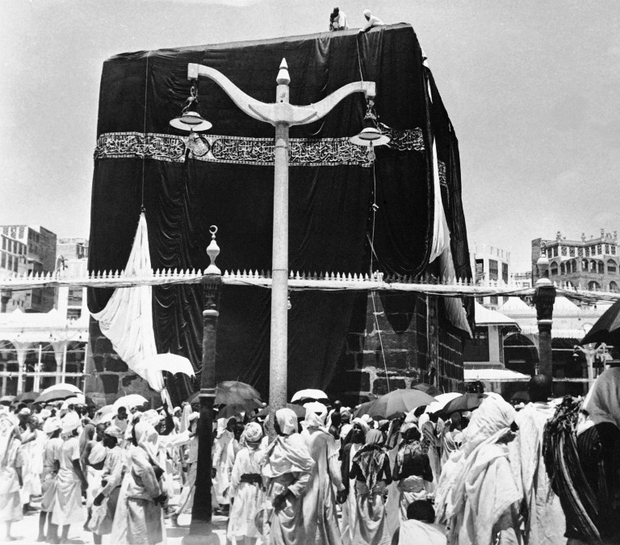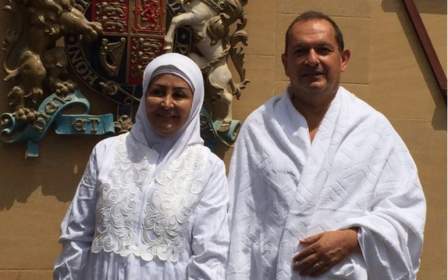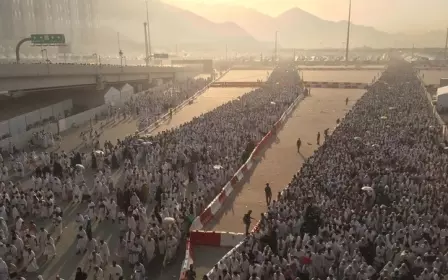Hajj Riders: Cyclists pedal from London to Medina in epic fundraiser
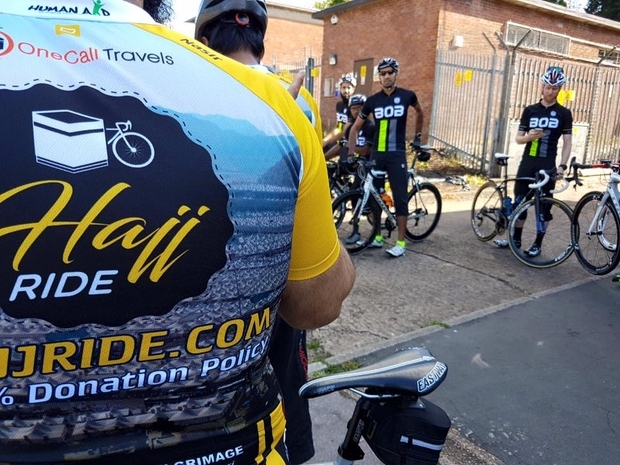
On a cold, windy morning in the south of Turkey, a chance encounter would change Abdul Wahid's world view forever.
The aid worker was in Turkey in 2014 to help distribute aid at Syrian refugee camps, part of a journey which will now see him cycle from the UK to Medina.
"The camp had run out of food and we had no choice but to act," said Wahid of that day in the camp.
'He had given us the only bit of food that was enough to feed him and his family for the rest of the week. I honestly had no words'
- Abdul Wahid, organiser of Hajj Riders
He was soon approached by an old man who took his hand and welcomed him inside his tent.
Not wanting to offend, Abdul Wahid sat down inside, where he was offered three figs and a small cup of tea. But the next moment would stay with him for the rest of his life.
"Our translator ran into the tent looking for us, spoke to the old man, and told us that he had given us the only bit of food that was enough to feed him and his family for the rest of the week," said Wahid.
"I honestly had no words."
Journey of a lifetime
Three years on, with this memory seared into his consciousness, Wahid, alongside seven other men from Britain, will embark on a journey of a lifetime and cycle all the way to Saudi Arabia in time for the annual Hajj pilgrimage at the end of August.
Cycling over 2,000 miles, the men will pass through eight countries in a bid to raise $1.3m (£1m) for ambulances and medical supplies for civilians who are trapped inside Syria.
"We are trying to use this ride to raise as much money as possible to help restore some dignity that has been taken away from the Syrian people over the last six years," said Wahid, who is asking for donations through the group's website.
Raising money for Human Aid, a humanitarian charity based in London, the men will tackle the Alps as they pass through France, Germany, Switzerland, Italy and Greece - locations renowned by cyclists the world over for their high inclines and scenic mountain routes.
They will then fly to Egypt where they will cross the Red Sea to reach Saudi Arabia and eventually cycle on to Medina. From Egypt, the eight cyclists will have no support car and will cycle to the very end unassisted as they endure desert conditions and temperatures expected to reach 50 degrees Celsius.
From Medina they will have to take a bus to Mecca because of restrictions on movement during the Hajj imposed by the Saudi authorities.
The journey will mark the first time anyone has cycled from Britain all the way to Saudi Arabia.
In previous years, one pilgrim had cycled to the Hajj from China.
"When a group of us cycled to Paris years ago, I thought, why not cycle all the way to Medina," said Wahid.
Dusting off his old plans, he then approached Human Aid and sat down with Yasin Chowdhury, the managing director of One Call Travel, a travel agency that has operated Hajj tours for Muslim pilgrims in the UK for nearly 20 years, organising visas and general logistics.
"They approached me five months ago in my office," said Chowdhury.
"At first I wasn't sure if it was possible but after talking with the Hajj riders, I vowed to give them 100 percent of my support to get them to Saudi Arabia."
Logistics and desert heat
Having previously lived in Saudi Arabia for nearly 10 years, Chowdhury runs one of the 92 travel agents in Britain authorised by the Saudi government to run Hajj packages from the UK.
But the biggest challenge Chowdhury faces will be tracking down the Hajj riders as they go through Europe and Egypt, as the Saudis issue Hajj visas only two weeks prior to the pilgrimage.
"We spent days trying to figure out how to physically give them their visas and how best to track them down," said Chowdhury.
"This has meant going through different scenarios and creating contingency plans to make sure they reach the Hajj. If they don't reach Medina by a particular date, then the Saudis will not allow them to actually perform the Hajj as the whole country is under lockdown during the Hajj period."
The ride will take the men through terrain that will test their limits and physically drain them, from scaling mountains as tall as 1,000 feet to temperatures inside Egypt and Saudi Arabia that can reach 50 degrees.
None of the riders are professional cyclists and they have all had to radically change their lifestyles in preparation for the six-week cycle to Saudi Arabia.
Dobbir Uddin, a lab technician based in London, will be one of the eight cycling to Hajj. He told MEE that the training has been a culture shock to all participants.
"The preparation has been gruelling for a lot of us," said Uddin.
"We've had to change our diets, so this has meant cutting down on the oily curry and rice, and bulking up in the gym so we're strong enough to complete the ride."
'Last time I was in Saudi, the hot breeze felt like a hairdryer was blowing onto my face'
- Abdul Wahid, organiser of Hajj Riders
Uddin, who helped map out the route, said: "For the journey itself we'll be cycling 40-50 miles every day and consuming an additional 8,000 calories daily through pasta and other solid foods.
"The hills and the desert conditions in the Middle East are going to prove the biggest challenge for us," Uddin predicts.
"The reason we've had to go through Egypt is of course due to the security risks that have been created by the ongoing Syrian civil war. In an ideal world, it would have been amazing to cycle through Syria and meet the very people we're trying to help."
But despite the terrain and politics, one of the biggest challenges the riders have had to prepare for is the desert conditions.
"We're hoping for it to be bright and sunny with a cold breeze. Last time I was in Saudi, the hot breeze felt like a hairdryer was blowing onto my face," said Wahid.
Reviving the spirit of pilgrimage
Travelling to the Hajj has changed rapidly over the past few decades. Before advances in air travel, many would go via land and boat, which could take months.
The men will be reliving a dying tradition of going to the Hajj by entering the land borders of Saudi Arabia, a feat that has created particular challenges for Chowdhury, who is used to requesting air visas from the Saudi government.
'In my grandfather's day, it took six months for him to go to the Hajj from India, and six months to go back'
- Yasin Chowdhury, Hajj tour operator
"Thanks to cheaper air travel, the adventure and horror stories no longer exist when it comes to Hajj," Chowdhury told MEE.
"In my grandfather's day, it took six months for him to go to the Hajj from India, and six months to go back. People would write their wills in case they never got back. Now people can complete the Hajj in two weeks."
Wahid hopes the Hajj ride will be a chance for people to relive the spirit of the pilgrimage, that forms one of the five pillars of Islam.
He also hopes the ride will help encourage Muslims to take up cycling and get fit.
"Not that many Muslims are into cycling, so we are trying to show them that this is something fun and that you can spend time with friends and build a real bond with them," he said.
"And for the non-Muslims, we hope the Hajj ride shows that we are not boring people and that we are more than just beards and like to have fun."
'This ride is our way of giving back to people like him and countless others who are suffering'
- Abdul Wahid
For Wahid and Uddin, this will be the first time they will be undertaking the Hajj pilgrimage, which is required by every Muslim to be completed once in their lifetime.
"The ultimate reason, besides raising awareness about the plight of the Syrian people, is to fulfil the fifth pillar of Islam, which is Hajj," said Wahid.
Although they concede they might need to rest when they first arrive in Saudi Arabia, they are committed to fully completing the Hajj.
"The moment I get to Medina, I will most probably rest for two days and then focus completely on finishing the Hajj by putting the journey and everything else behind me to fulfil this obligation," said Wahid.
With tears in his eyes, Abdul Wahid looked into the distance.
"That old man gave me all his food without knowing we were there to bring aid to him. This ride is our way of giving back to people like him and countless others who are suffering."
New MEE newsletter: Jerusalem Dispatch
Sign up to get the latest insights and analysis on Israel-Palestine, alongside Turkey Unpacked and other MEE newsletters
Middle East Eye delivers independent and unrivalled coverage and analysis of the Middle East, North Africa and beyond. To learn more about republishing this content and the associated fees, please fill out this form. More about MEE can be found here.


